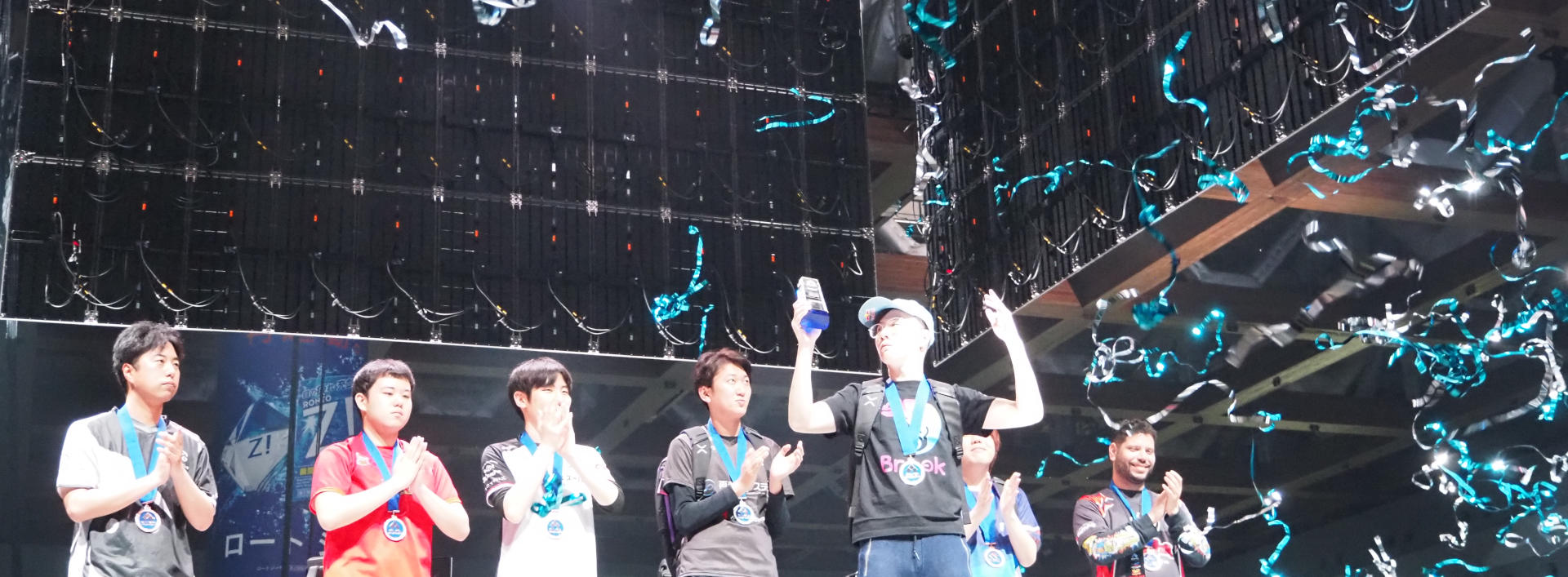I woke up this morning and was surprised to see on the news that there is a yearly Japanese new word / hot phrase prize awarded. It looks like this prize is sponsored by a publishing company, and has been awarded annually since 1984. You can check their yearly archive to see who won the prizes in the past.
I’m sure there are many bloggers in the Japan ex-pat sphere that are much more on top of these things than I am, but I thought it would be amusing to take a look through this year’s list and see what I can figure out. In general, it seems like an odd pastiche of catchphrases, nicknames, and social phenomena.
And the winners are…
どげんかせんといかん
(Dogenkasen to ikan) This is a regional dialect from Miyazaki-ken. The person who popularized this saying is 東国原英夫 (Higashikokubaru Hideo), currently the prefectural governor of Miyazaki-ken recently elected in January of 2007. Before that he was one of Japan’s many “Talent”, basically a TV personality of some kind.
This phrase is indecipherable to me, so I did a bit of searching on the interweb. I know that いかん is basically Kansai-ben for “bad”, so I can make some guesses based on that, but what I came up with, from this blog posting, is that it means “We have to do something (about this).” I also know that the ~せん suffix is used in some dialects as a negative, so I can guess now that どぐ might be something like する (to do.) These are all conjectures though.
It seems like the story of this guy is that he was recently elected to the prefectural government of Miyazaki, which hasn’t been viewed in the best of lights recently. He’s know as the “Miyazaki Salesman” because he shows up on TV shows and other things to extol the virtues of Miyazaki. Popularizing some of the local dialect spoken in Miyazaki has been one of the points on his agenda apparently. Anyway, it is interesting to learn, and I wish I knew more about this particular dialect, but in practice if you live in Tokyo you will only hear standard Japanese, and some Kansai-ben if you watch TV and comedians, along with whatever your friends speak. It seems like most of my friends speak French or Senegalese these days, so Miyazaki-ben is completely out of the running for me.
ハニカミ王子
(Hanikami Prince) This is the nickname for Ishikawa Ryu, a freshman high school student amateur golfer that has been popular lately. The nickname was given to him by his godparent, who was announcing the Munsingwear Open KBS Cup at the time that Ryu won it. I don’t understand what the nickname means at all, but a quick look at his wikipedia entry did not clear anything up at all. It says that the nickname was born at the time of his interview after winning the event, but doesn’t say where it came from. It says that was previously called “The Sunvisor Prince” because he wore a sunvisor, but that didn’t stick, and Hanikami Prince did because of his characteristics.
And a slap to the forehead time: はにかみ屋 is in the edict as “a very shy person”. So I’m guessing this is more properly called “The Shy Prince” and now it all makes sense.
I also think this is about as cool as everyone fawning over “The Handkerchief Prince” from last year, who was a baseball player (pitcher) for Waseda who wiped his brow with a handkerchief all the time. People went nuts over him too. I’m not as interested in fashionable nicknames.
(消えた)年金
(Kieta Nenkin) This is a reference to the recent trouble about missing pension money. This year, over $450,000 in pension money went “missing”. (This is nothing compared to how much money has gone missing in Iraq for the US!) 舛添要一 (Masuzoe Youichi) is a politician, and also ex-Talent, who has been involved with the missing pension money. He’s the part of the Liberal Democratic Party of Japan, the Minister of Health, Labor, and Welfare, and a well-known political scientist (not that I know of him!) Anyway, he has been speaking out about lack of accountability and other problems with the social insurance agency. The “Disappearing pension money” is one of his catch-phrases.
そんなの関係ねぇ
(Sonnano Kankei nee) This is an annoying catch-phrase that is apparently the height of Japanese humor, but just strikes me as completely idiotic and scraping the bottom of the barrel of humor. (Of course, my friends would call me a hypocrite to be calling any humor stupid, but that’s for another day.) Anyway, そんなの関係ねぇ means “that has nothing to do with it!” or something along those lines. It is a catchphrase that this comedian, 小島よしお (Kojima Yoshio) uses. He comes out wearing just a swimsuit (Speedo-style, why?) and repeatedly says this in a good rhythm to cheer himself up. Man, this stuff is not funny. Of course, in his “interview” he answered every question with “that has nothing to do with it!”
I’m going to start using this at work and see if people laugh. They probably will. How depressing. My amazingly funny, complex puns based on subtle translation errors just get blank stares, or worse, elicit outright anger. You know what I tell myself though: そんなの関係ねぇ!
どんだけぇ〜
(Don dakeh~) This is another annoying catch-phrase joke that you hear way too often. It basically means something like “how much (or far) [has that gone?] – [it can’t be as much as your are saying]”. It comes from どれだけ and is often used with a sarcastic intent. So if someone says “I ate two donuts” you can say “How many?” with the implication being “you couldn’t have eaten two donuts!” (it must be many more because you are fat) or something like that. Then people will laugh.
Also, the person that was nominated for this is Ikko, a makeup artist and Talent who is a cross-dresser. He said that this isn’t really his gag, it is one that is popular in the gay bars down in Shinjuku 2-chome. Japanese people seem to really like cross-dressers and think they are very funny. I guess they’re kind of like the British that way.
鈍感力
(donkanryoku) Thick-skinned (well, that’s my translation anyway.) More literally it is something like “the power to be stolid”. This is by author Watanabe Jyunichi, who wrote a book of the same name. The meaning is basically “don’t worry so much about the little things” which is a good message I think. But I’m pretty sure I don’t really get all the significance of the word, since I don’t really know what that means within the Japanese culture context. What is “little stuff” to me probably has no bearing on what is “little stuff” to the Japanese, and vice-versa for the big stuff.
食品偽装
(Shyokuhin Gisou) This one is kind of interesting. It means “fake food” and is a reference to a company here in Japan called “Meat Hope” which labeled some of its meat products as ground beef when in actuality the products included pork or rabbit or other things like that. There were other similar sorts of food-based incidents, like a company that was selling fresh-made tofu treats (for years and years) but was actually labeling them as made on the day they were thawed out after being frozen, and other things like that.
ネットカフェ難民
(ネットカフェ なんみん) This is a social phenomena expression. It refers to people that, for whatever reason, sleep in internet cafés. Some of the people are homeless and use the cheap net cafes (some with 1000 yen overnight packages) to grab a shower and sleep in big recliner chairs. The translation is pretty clear, literally: net cafe refugees.
大食い
(おおぐい) I think the reading is right. Anyway, this word I guess refers to the gradual super-sizing of foods in Japan. Just like in America, portions are getting bigger, and food is getting less healthy (depending on where you eat anyway.) The recipient for this prize was ギャル曽根 (Gal Isone, maybe loosely translatable as Stomach Girl). She is Talent, and appears on eating competition shows. She can eat a lot, I’ve seen some of the shows that she’s been on. She must exercise a lot with the amount that she eats.
猛暑日
(もうしょび) The day of fierce heat. It was awarded to the president of the Kumamoto-city shop-owners association (or something like that.) This summer, temperatures reached 40.9 degrees Celsius (105.6 F) in Kumamoto. That’s crazy hot.
Well, that does it for this year’s top 10 buzzwords / hot phrases prize. I thought that one of them was pretty interesting, and three of them were completely worthless. The others are somewhere in between. It was kind of fun looking some of this stuff up though.





Leave a Reply